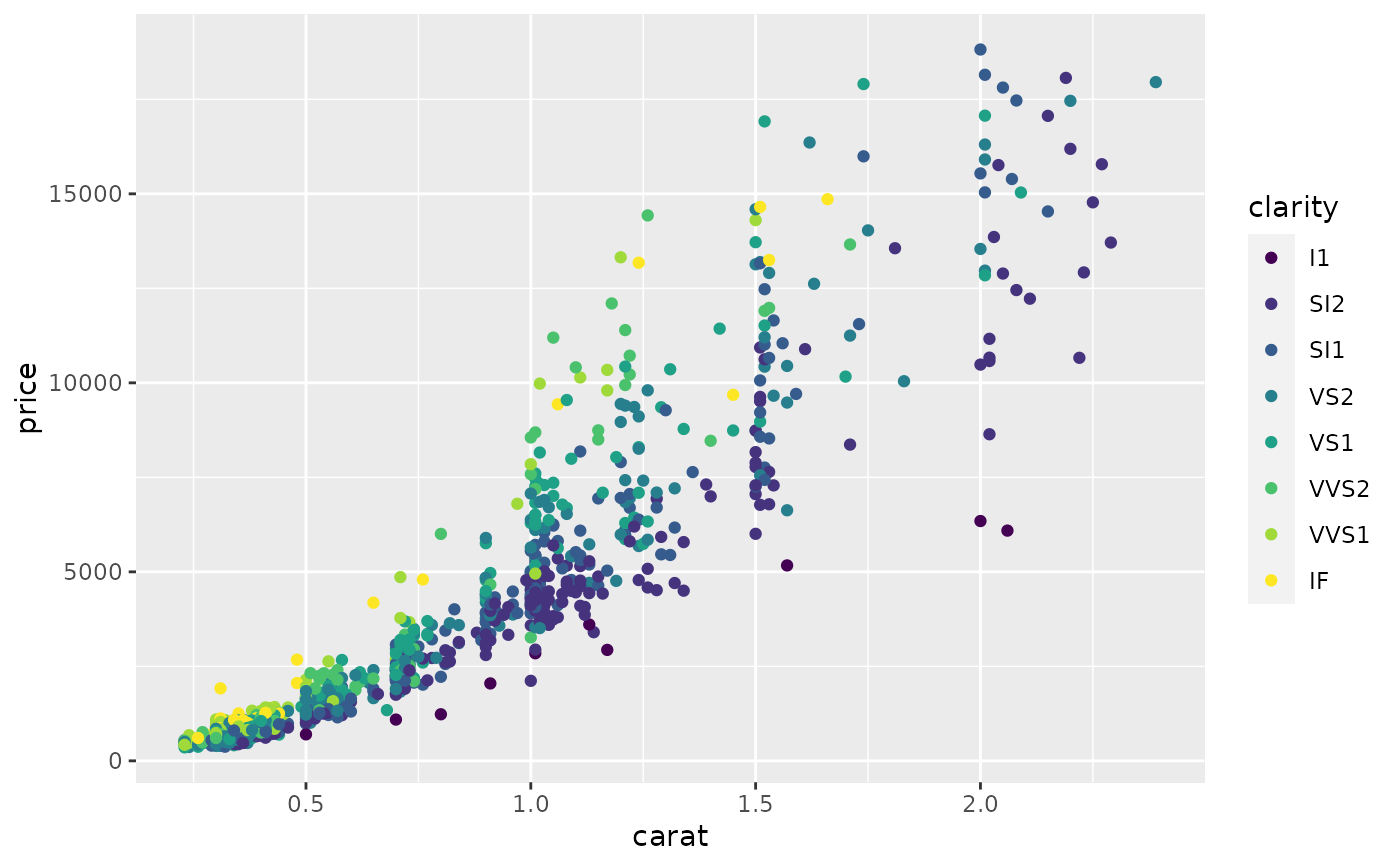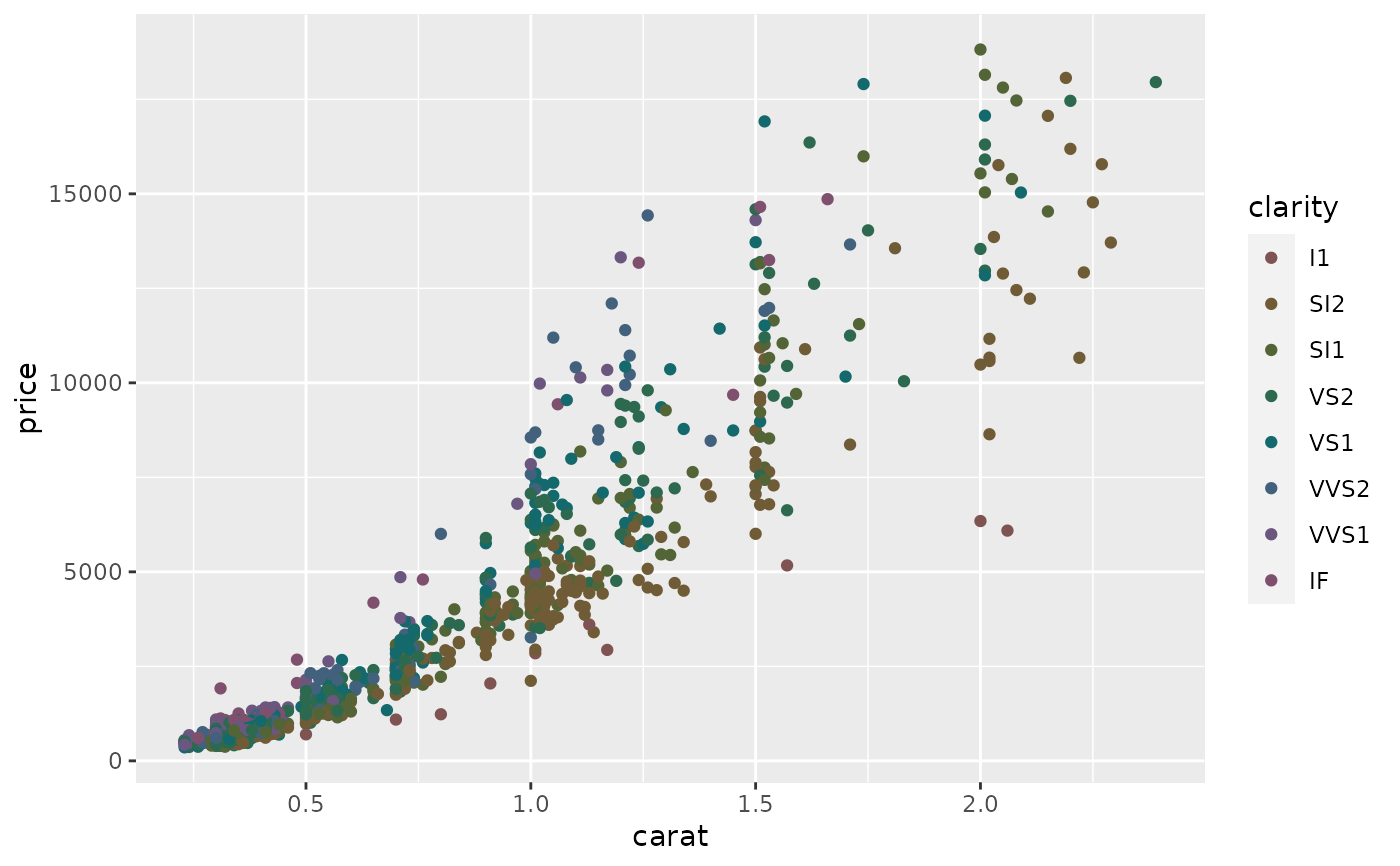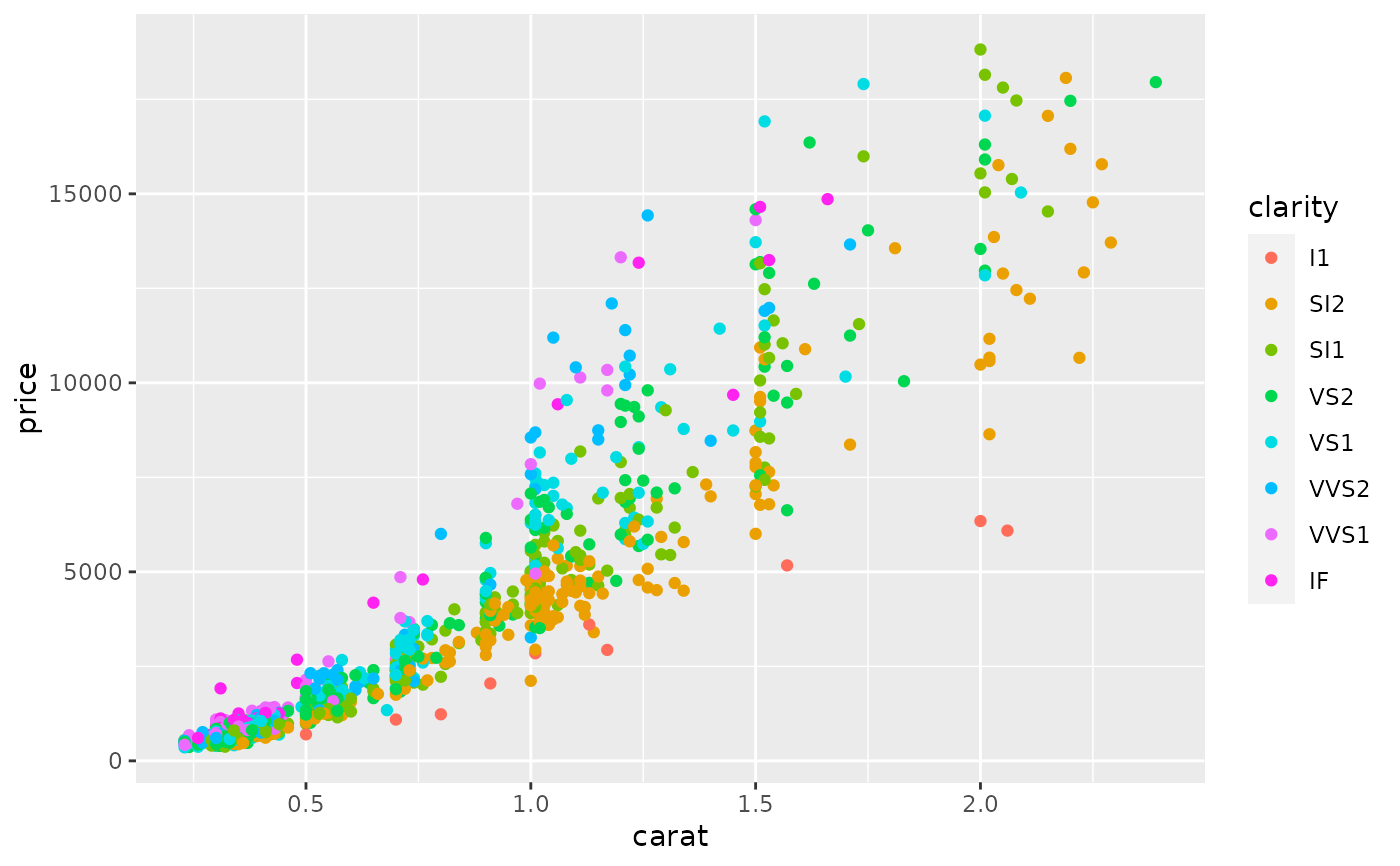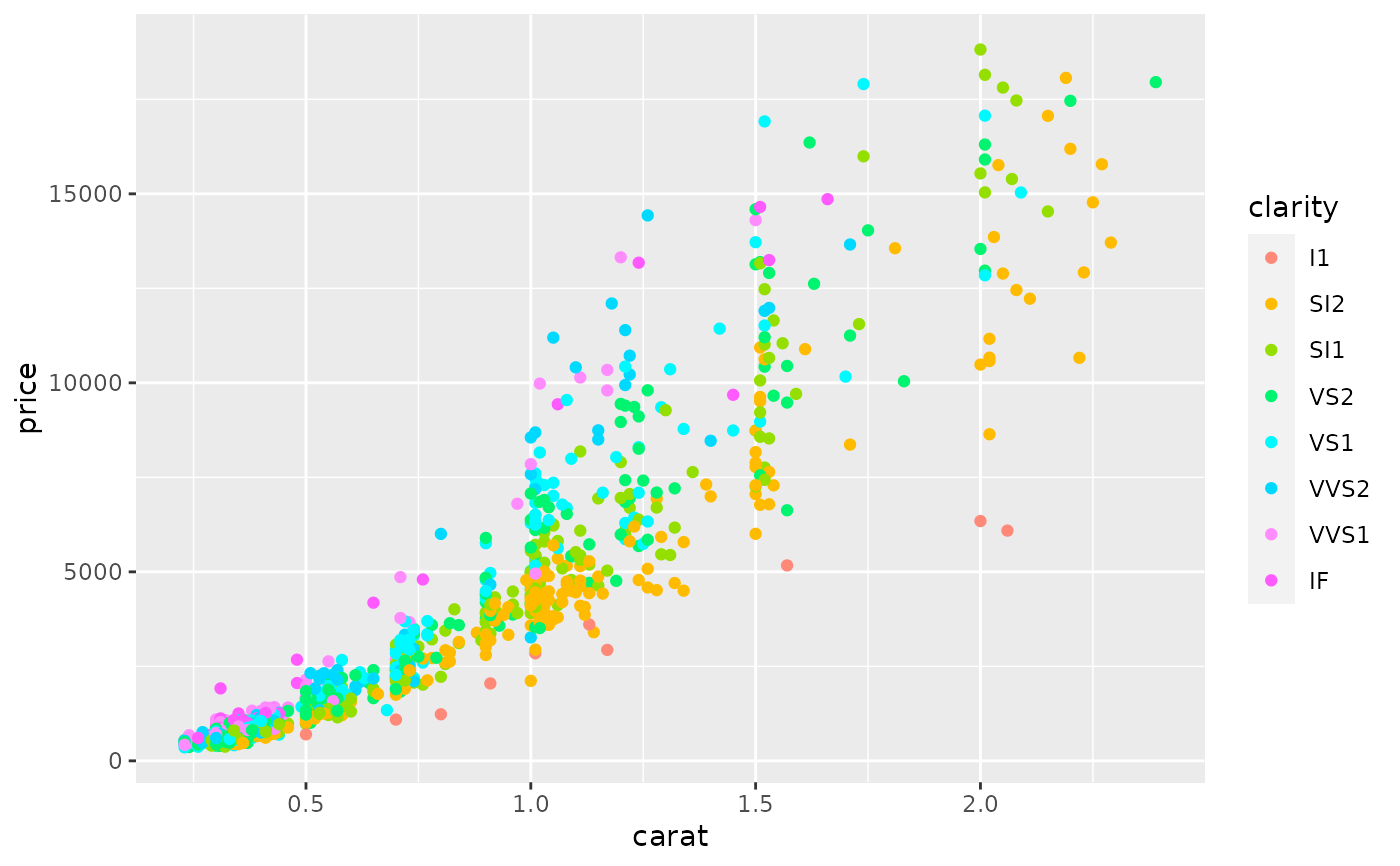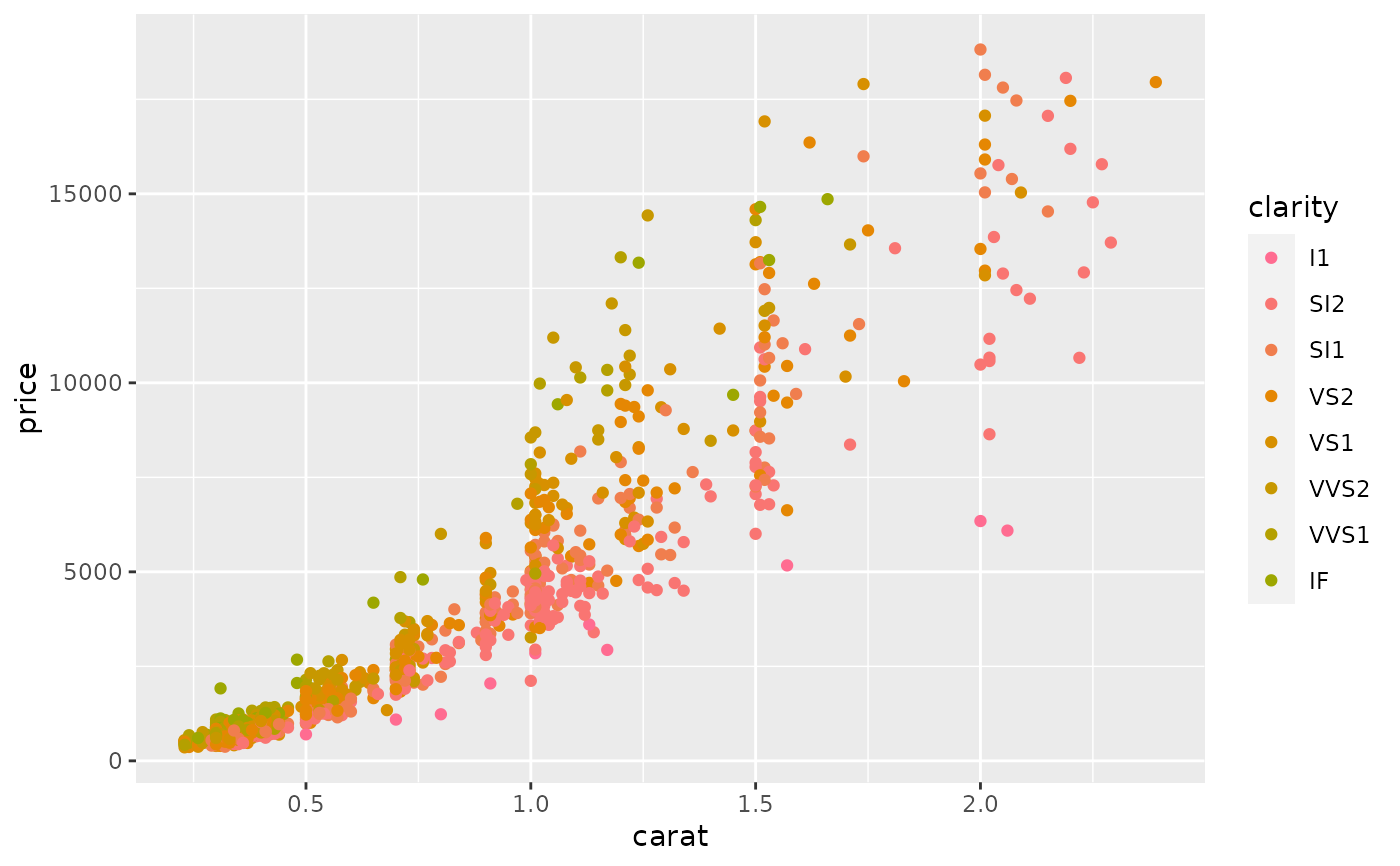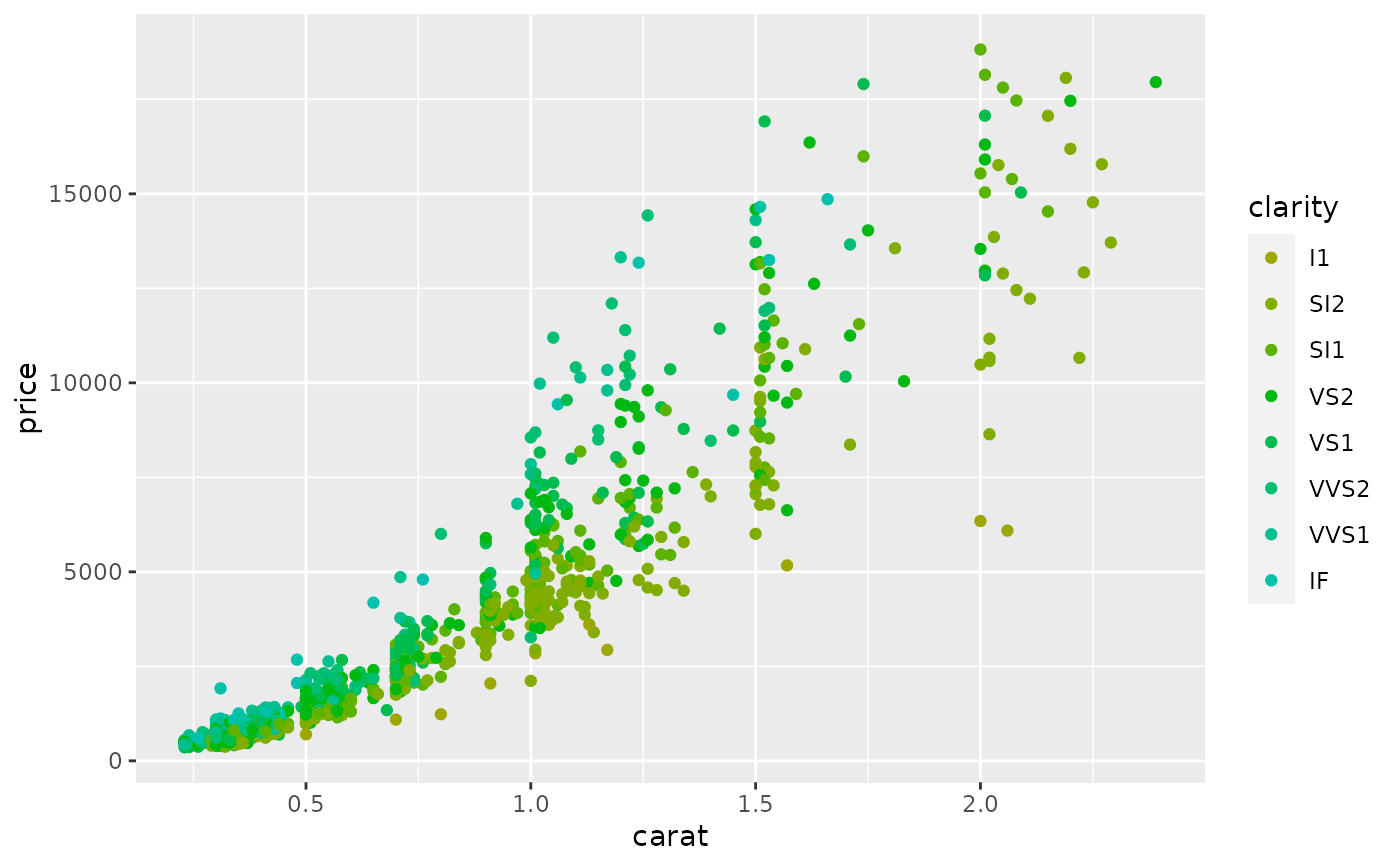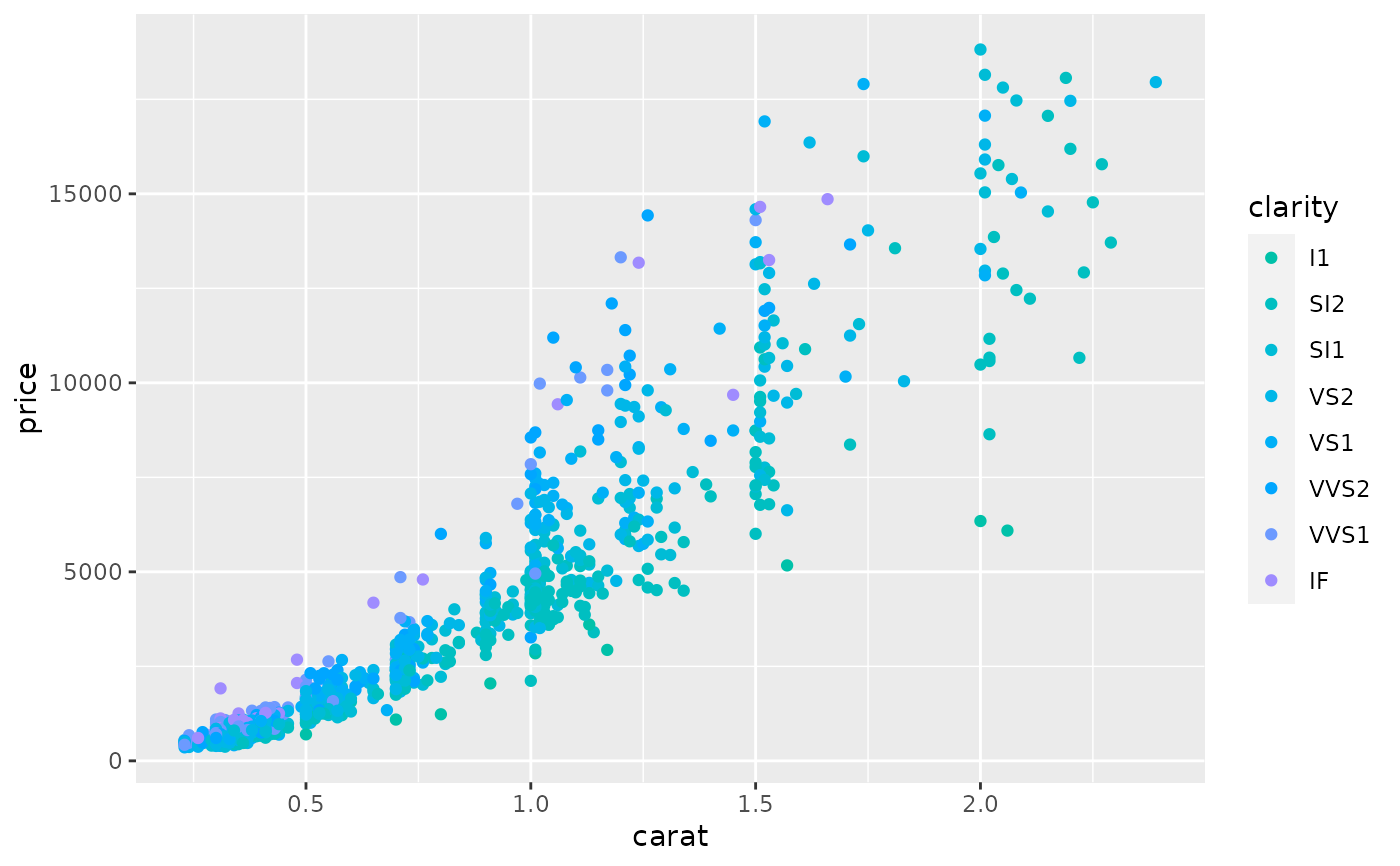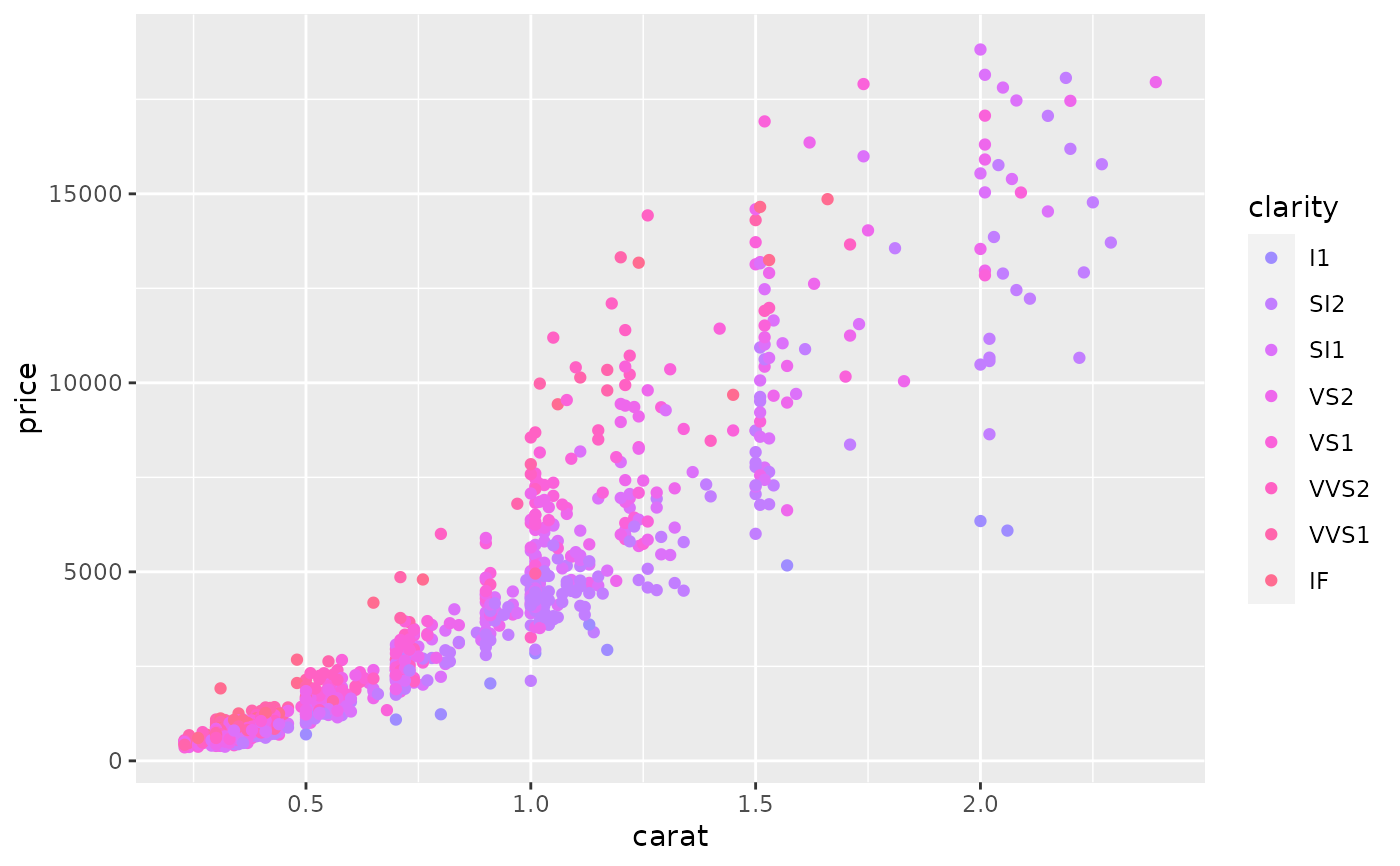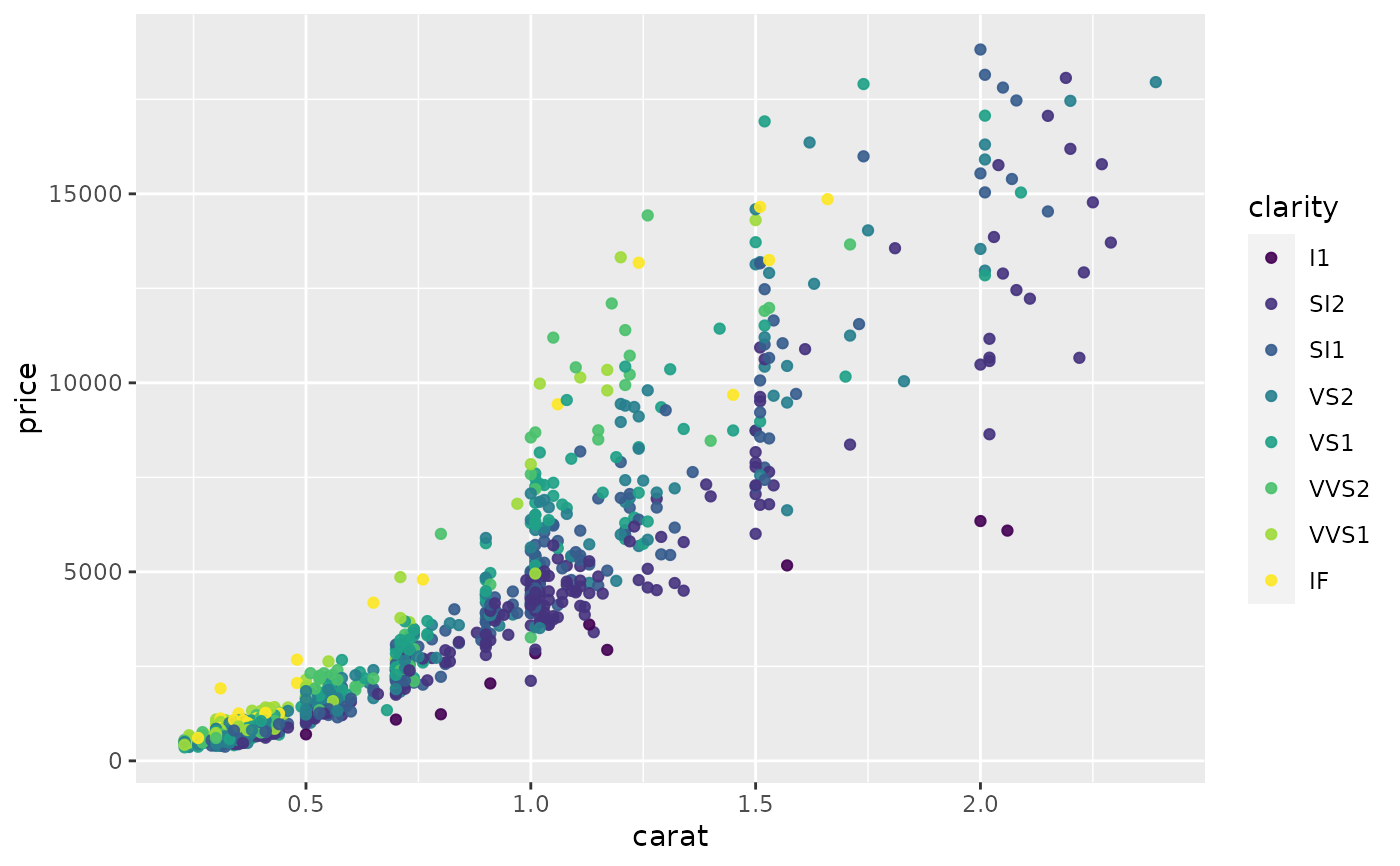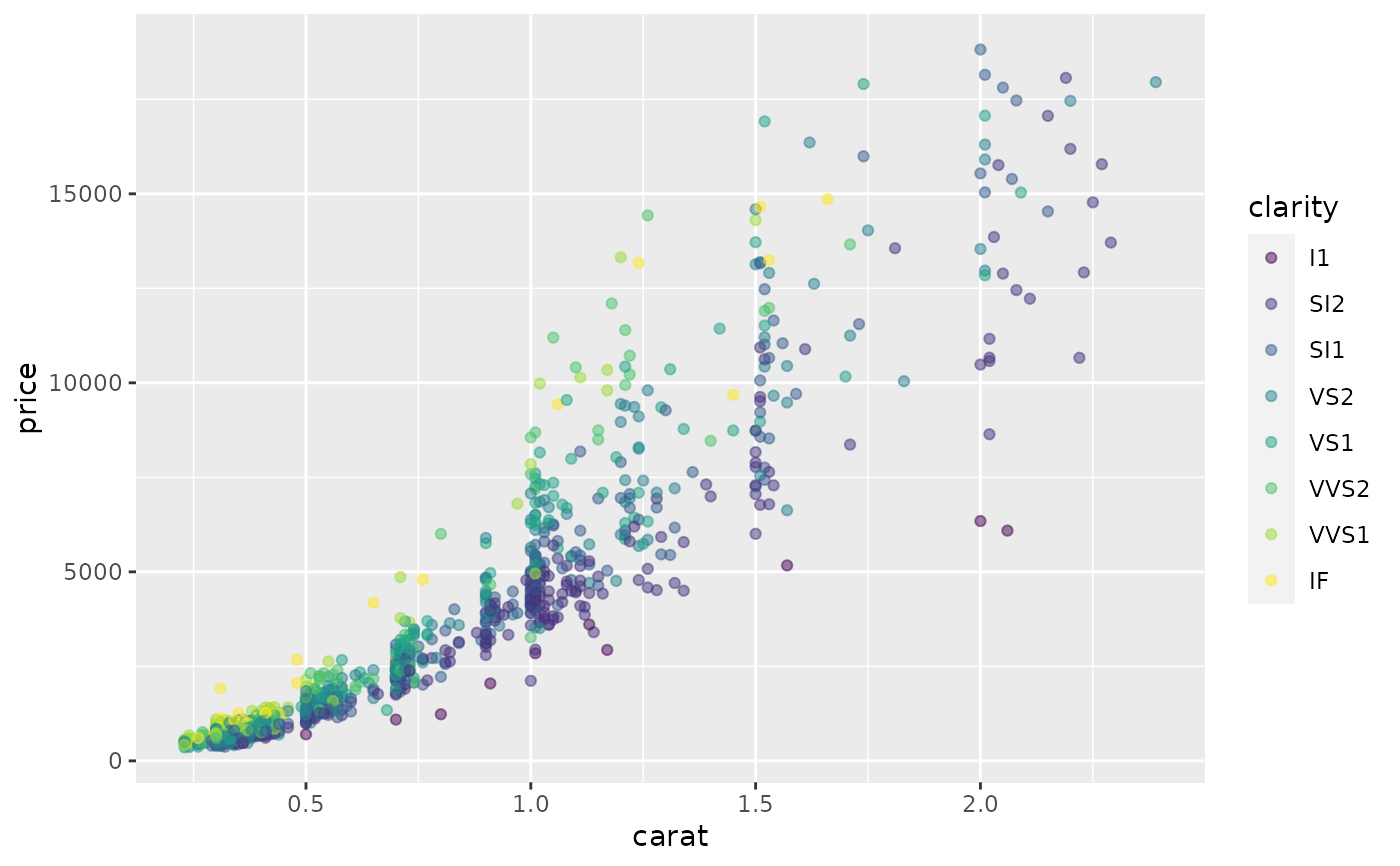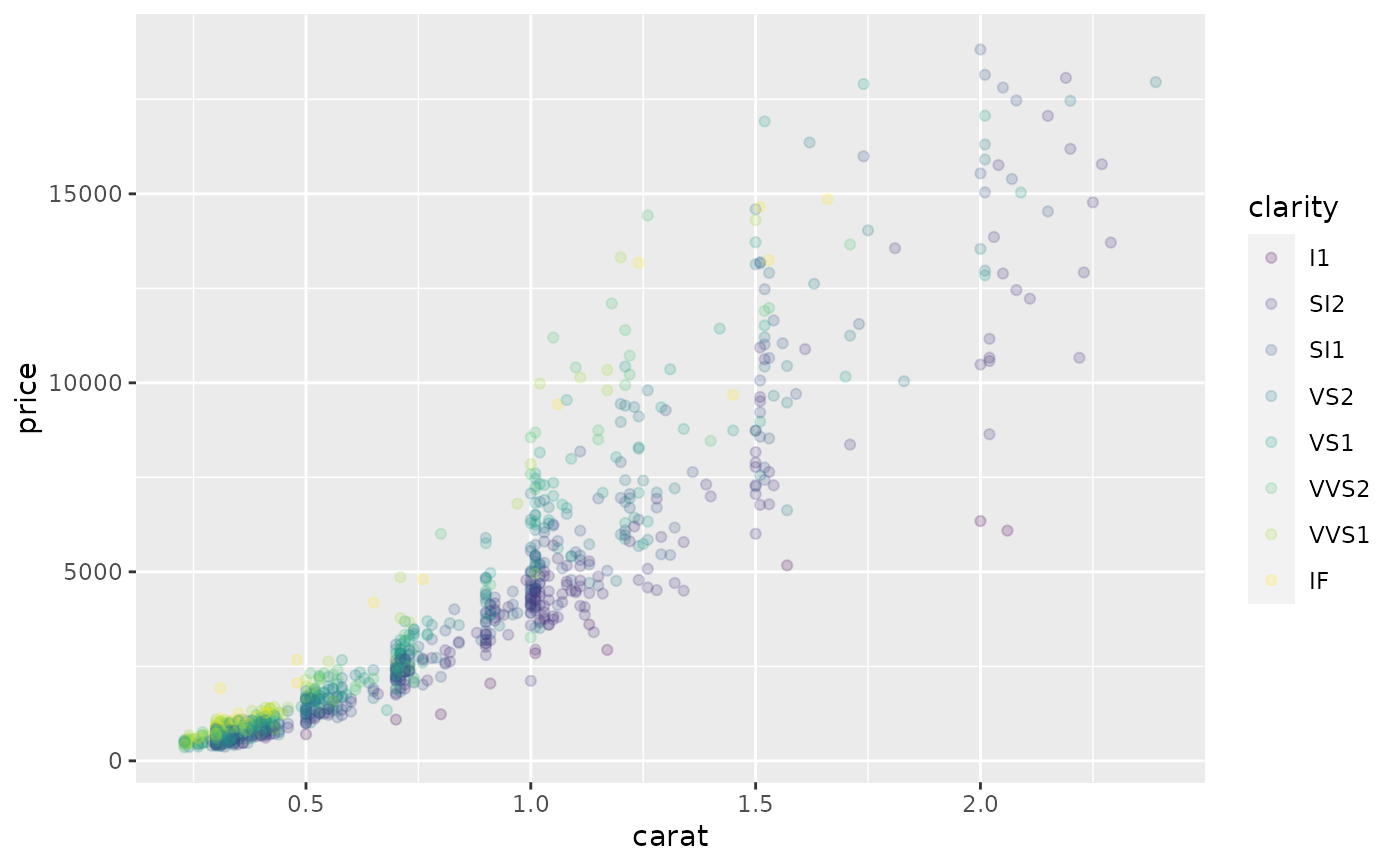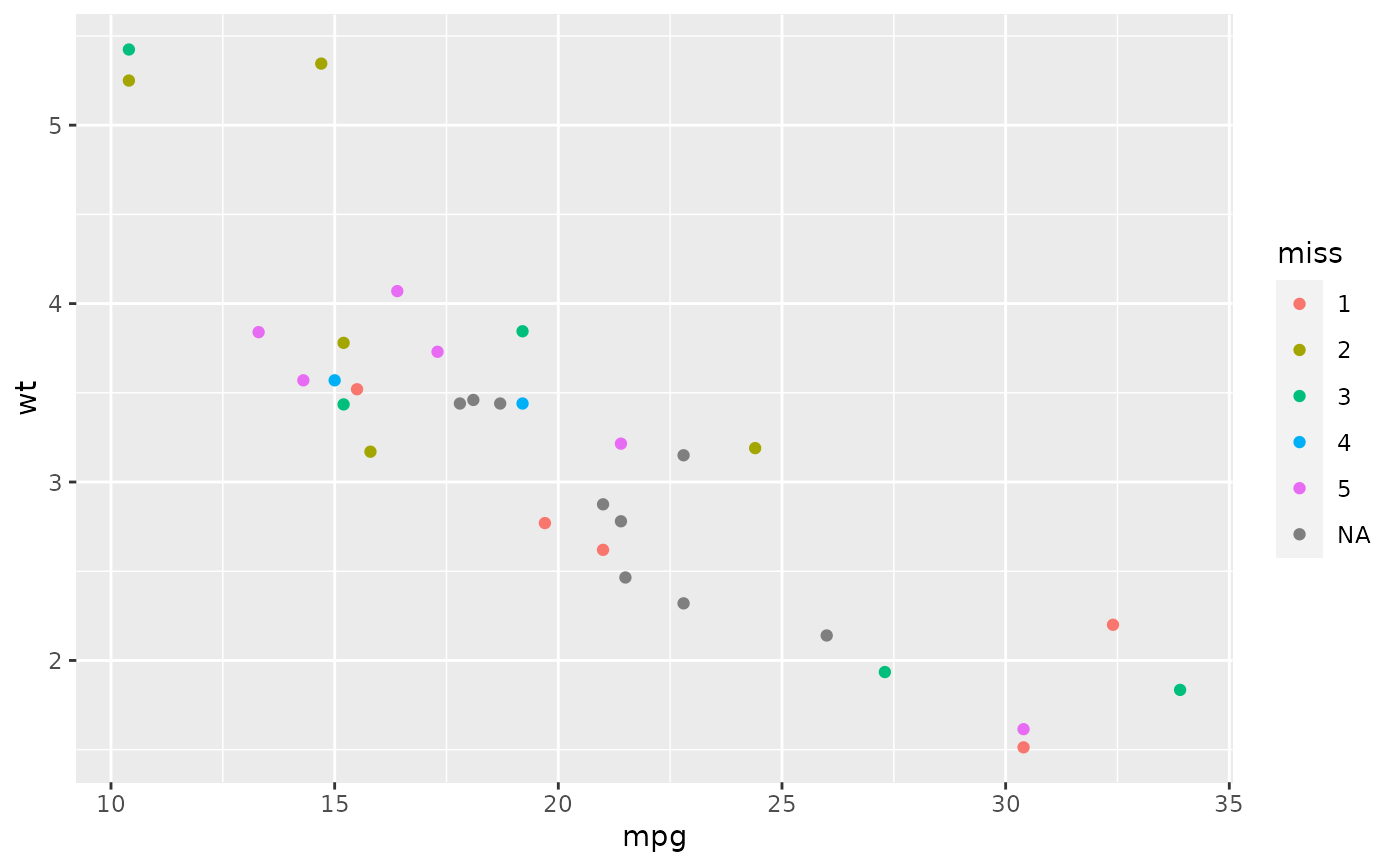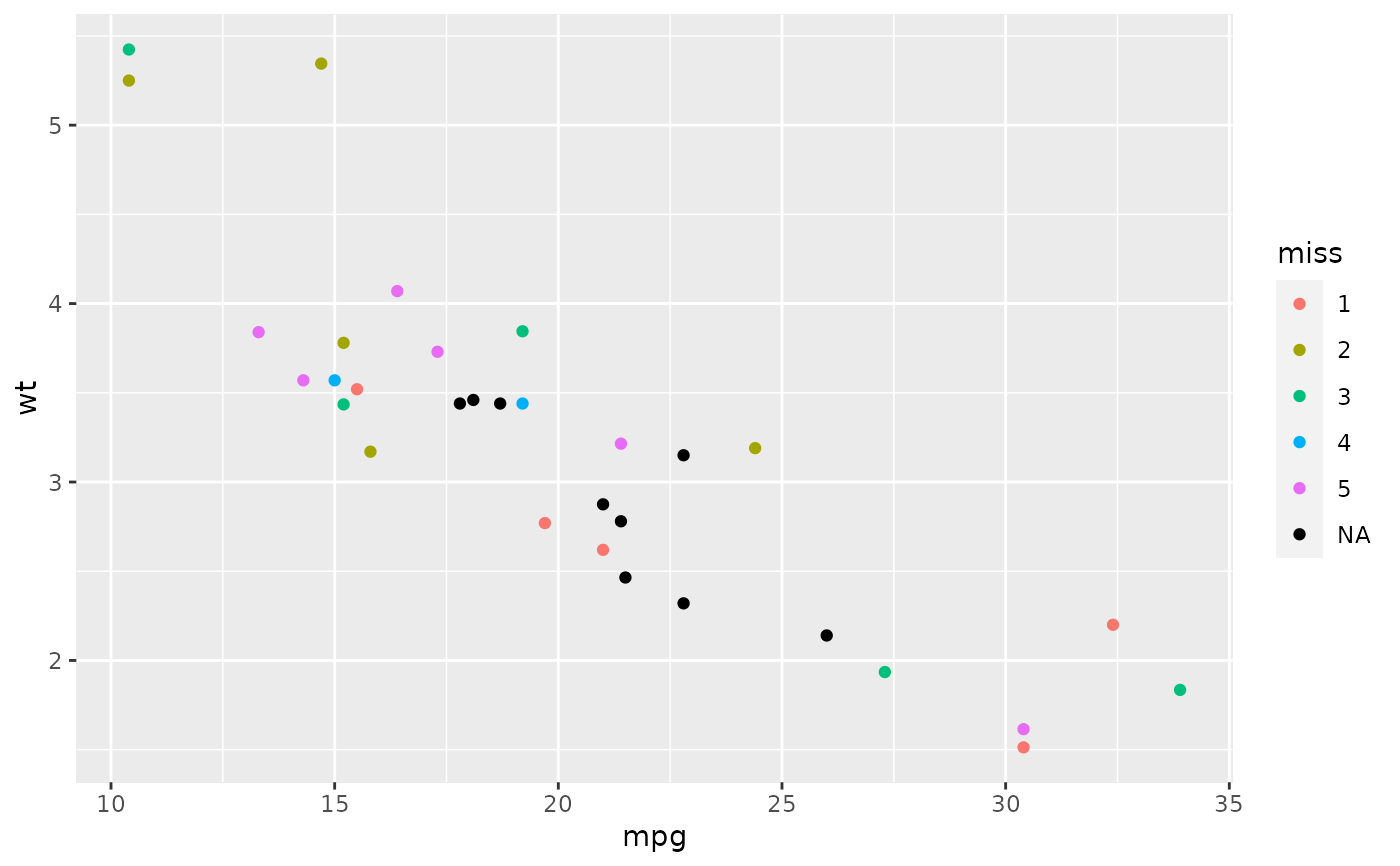Maps each level to an evenly spaced hue on the colour wheel. It does not generate colour-blind safe palettes.
scale_colour_hue( ..., h = c(0, 360) + 15, c = 100, l = 65, h.start = 0, direction = 1, na.value = "grey50", aesthetics = "colour" ) scale_fill_hue( ..., h = c(0, 360) + 15, c = 100, l = 65, h.start = 0, direction = 1, na.value = "grey50", aesthetics = "fill" )
Arguments
| ... | Arguments passed on to
|
|---|---|
| h | range of hues to use, in [0, 360] |
| c | chroma (intensity of colour), maximum value varies depending on combination of hue and luminance. |
| l | luminance (lightness), in [0, 100] |
| h.start | hue to start at |
| direction | direction to travel around the colour wheel, 1 = clockwise, -1 = counter-clockwise |
| na.value | Colour to use for missing values |
| aesthetics | Character string or vector of character strings listing the
name(s) of the aesthetic(s) that this scale works with. This can be useful, for
example, to apply colour settings to the |
See also
Other colour scales:
scale_alpha(),
scale_colour_brewer(),
scale_colour_continuous(),
scale_colour_gradient(),
scale_colour_grey(),
scale_colour_steps(),
scale_colour_viridis_d()
Examples
# \donttest{ dsamp <- diamonds[sample(nrow(diamonds), 1000), ] (d <- ggplot(dsamp, aes(carat, price)) + geom_point(aes(colour = clarity)))# Change scale label d + scale_colour_hue()d + scale_colour_hue("clarity")# Adjust luminosity and chroma d + scale_colour_hue(l = 40, c = 30)d + scale_colour_hue(l = 70, c = 30)d + scale_colour_hue(l = 70, c = 150)d + scale_colour_hue(l = 80, c = 150)# Vary opacity # (only works with pdf, quartz and cairo devices) d <- ggplot(dsamp, aes(carat, price, colour = clarity)) d + geom_point(alpha = 0.9)# Colour of missing values is controlled with na.value: miss <- factor(sample(c(NA, 1:5), nrow(mtcars), replace = TRUE)) ggplot(mtcars, aes(mpg, wt)) + geom_point(aes(colour = miss))ggplot(mtcars, aes(mpg, wt)) + geom_point(aes(colour = miss)) + scale_colour_hue(na.value = "black")# }
